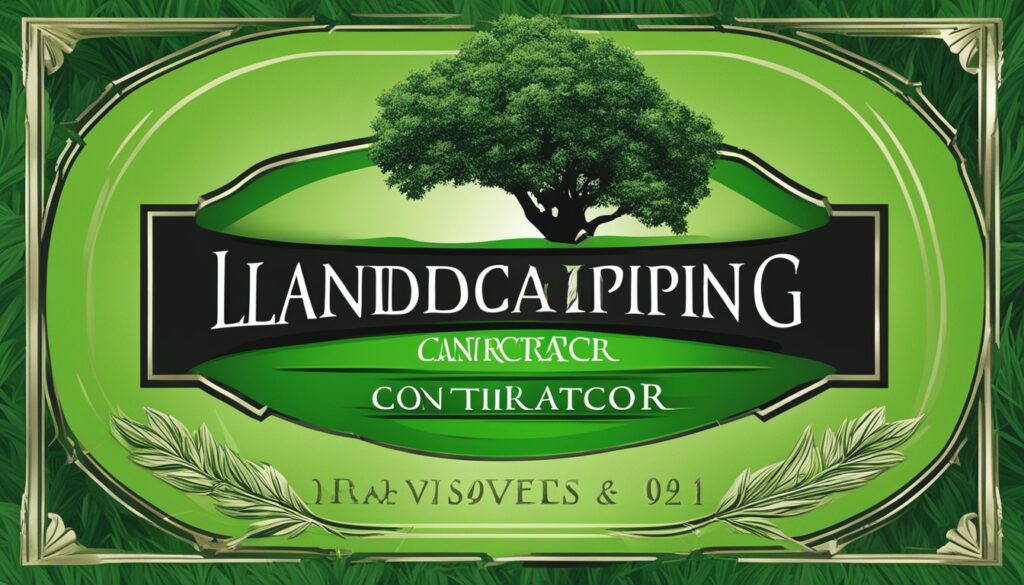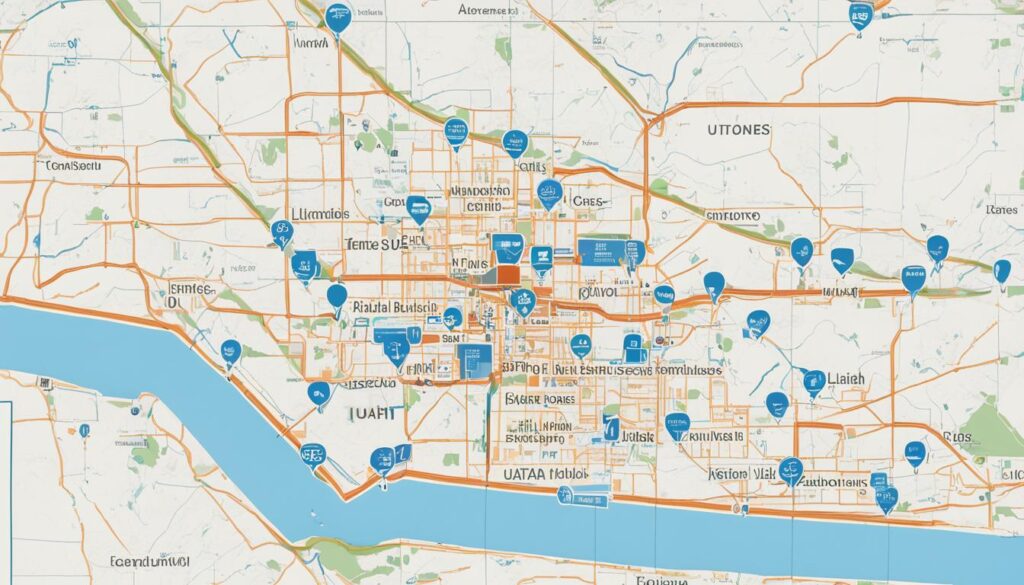Starting a landscaping business in the United States is more than just loving nature. You must understand the rules about landscaping business licenses and lawn care. With 16 states needing specific licenses for landscapers, and others asking for general business permits, knowing what you need is key.
Landscaping licenses cover many services, like putting in lawns and complex projects like irrigation systems and tree planting. They can even include building decks and retaining walls. If you’re working alone or with a team, getting the right license is crucial. It helps you work legally and gain your clients’ trust.
To get your landscaping license, you’ll need education, experience, and to pass a test. This might seem tough, but it’s vital for a successful landscaping business. Just like starting an asphalt paving business needs careful planning, so does landscaping.
Key Takeaways
- 16 states require specific landscaping licenses
- General business licenses are often necessary even without state-specific requirements
- Licenses may cover lawn installation, irrigation, and tree planting
- Some licenses extend to landscaping architecture projects
- Licensing process typically includes education, experience, and exams
- Both individual landscapers and businesses may need licenses
Understanding Landscaping Business Licenses
Starting a landscaping business takes more than just a love for plants. You must understand the legal side, including licenses and certifications. Let’s dive into the basics of landscaping business licenses.
Definition and Purpose of Landscaping Licenses
A landscaping contractor license lets you work in the field professionally. It ensures you offer quality services and keeps customers safe. Licenses for landscaping differ by state and might need certain education or training.

State-Specific Licensing Requirements
Every state has its own rules for landscaping businesses. For instance, California needs a license for jobs over $500, and North Carolina for jobs over $30,000. Some states want both a personal and business license. Always check your local laws before starting your lawn care business.
Common Types of Landscaping Licenses
You might need different licenses for various aspects of landscaping:
- General landscaping contractor license
- Lawn maintenance license
- Landscape business certification
- Pesticide applicator license
Each license has its own purpose and may need different qualifications. Forming an LLC doesn’t mean you don’t need the right licenses. Make sure you get all the permits to legally and professionally run your landscaping business.
General Business Licenses for Landscapers
Starting a landscaping business is more than just cutting grass and planting flowers. You must get the right permits and register your business to follow the law. Let’s look at the key licenses landscapers need.
Local Business Permits
Your first step is to get lawn care business permits from your local government. These permits vary by city or county. So, check with your local business licensing office. They will help you with the process and the costs of registering your landscaping company.
State Business Registration
Then, you must register your business with the state. This depends on where you are and how your business is set up. Some states need extra permits for certain landscaping services. Knowing the difference between business licenses helps you make smart choices for your company’s legal setup.
Employer Identification Number (EIN)
An EIN is key for taxes and often needed for other licenses. You can get this number from the IRS. It’s vital for hiring staff and opening business bank accounts. Remember, registering your landscaping company right means getting all the needed IDs and permits.
Specialized Licenses for Landscaping Services
Starting a landscaping business might need more than just a basic license. The type of license you need depends on your state and the services you offer. You might need specialized licenses.

For example, if you work with irrigation systems, you’ll likely need a special license. In California, landscapers often get a C-27 landscaping contractor license. This license requires four years of experience, passing certain exams, and having a big bond.
Tree care also might need its own license. In Hawaii, you need a C-27b Tree Trimming and Removal Contractor license to do this work legally.
- Irrigation work license
- C-27 landscaping contractor license (California)
- Tree trimming and removal license
- Pesticide application license
Remember, each state has its own rules. It’s important to check with your local licensing board to see what licenses you need. This makes sure you’re following the law and can offer all the services your clients want.
What Type of Business License Do I Need for Landscaping
Finding the right business license for landscaping can be tough. It depends on many factors and local rules. Let’s look at how to find out what license you need for landscaping.
Factors Influencing License Requirements
The licenses you need for landscaping are affected by:
- Your location (state and local laws vary)
- The range of services you offer
- Whether you use pesticides or fertilizers
- The size of your business
Steps to Determine Your Licensing Needs
To find out what license you need for landscaping:
- Research your state’s landscaping rules
- Check local permit needs
- Make a list of services you plan to offer
- Talk to your local Small Business Administration office
Common Landscaping License Categories
Common licenses for landscaping include:
- General Business License
- Contractor’s License
- Pesticide Applicator License
- Specialty Licenses (e.g., for tree removal or irrigation)
Remember, requirements can change a lot. Always check with your local authorities to make sure you have all the licenses you need for your landscaping business.
Pesticide Application Licenses for Landscapers
Lawn care licensing often includes pesticide application. Many states need special licenses for landscapers who use pesticides. These rules help keep people and the environment safe.
State-Specific Pesticide Licensing Requirements
Each state has its own pesticide rules for landscaping. For instance, California requires a Qualified Applicator Certificate for any pesticide use. In North Carolina, you need a Commercial Ground Applicators license if you’re paid for applying pesticides. Oregon has different rules depending on the pesticides used. It’s important to check your state’s specific requirements to make sure you’re following the law.
Certification Process for Pesticide Applicators
To get certified, you must pass exams on pesticide safety and how to apply them. These tests cover topics like handling, storing, and disposing of pesticides safely. The certification process makes sure landscapers know the risks and best practices of using pesticides. Landscaper license types can vary, so it’s important to research what’s needed in your area.
Continuing Education for Pesticide Licenses
Many states require ongoing education to keep your pesticide license. This ensures you know the latest safety rules and regulations. Continuing education may include workshops, online courses, or seminars. By keeping your knowledge up-to-date, you can offer safer and more effective services to your clients while following state laws.
FAQ
What is the purpose of landscaping licenses?
Do I need a license for my landscaping business in every state?
What types of landscaping licenses are commonly required?
Do I need separate licenses for different landscaping services?
How do I determine what licenses I need for my landscaping business?
Do I need a pesticide license to use pesticides in landscaping?
What is an Employer Identification Number (EIN), and why is it important for landscaping businesses?
Author
-

David Nguyen is an expert in business licensing, with extensive knowledge in local and international regulations. His expertise is crucial for businesses seeking guidance on compliance and licensing strategies.
View all posts



